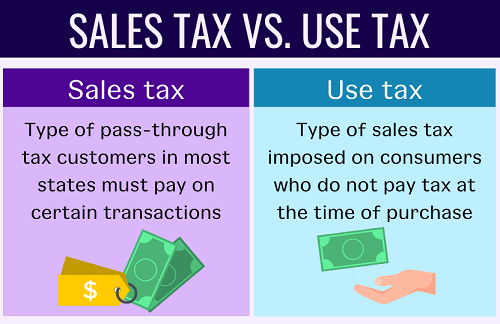Section 6-1: Sales Tax
Section 6-1: Sales Tax
Overview

 Sales tax is a consumption tax imposed by state and local governments on the sale of goods and services. It is typically calculated as a percentage of the purchase price and is collected by the seller at the point of sale. Sales tax revenue is used by governments to fund public services and programs.
Sales tax is a consumption tax imposed by state and local governments on the sale of goods and services. It is typically calculated as a percentage of the purchase price and is collected by the seller at the point of sale. Sales tax revenue is used by governments to fund public services and programs.
Here's how sales tax works:
Rates: The sales tax rate varies by jurisdiction and can include state, county, city, and special district taxes. Each jurisdiction sets its own sales tax rate, which is usually expressed as a percentage of the purchase price. For example, if the sales tax rate is 8%, a $100 purchase would incur $8 in sales tax.
Taxable Items: Not all goods and services are subject to sales tax, and what is taxable can vary by jurisdiction. Generally, tangible goods, such as clothing, electronics, and groceries, are subject to sales tax. Some states also tax services, such as dining at restaurants, hotel stays, and car rentals.
Exemptions: Certain items may be exempt from sales tax, depending on the jurisdiction and the nature of the transaction. Common exemptions include food purchased for home consumption, prescription medications, medical services, and certain types of clothing.
Point of Sale: Sales tax is collected by the seller at the point of sale, typically added to the purchase price of the goods or services. The seller is responsible for remitting the collected sales tax to the appropriate taxing authority.
Taxable Basis: Sales tax is calculated based on the taxable basis, which is the total purchase price of the goods or services subject to tax. Some jurisdictions allow certain deductions or exemptions that reduce the taxable basis.
Regulation and Compliance: Businesses are responsible for complying with sales tax regulations in the jurisdictions where they operate. This includes registering for a sales tax permit, collecting sales tax from customers, filing periodic sales tax returns, and remitting the collected tax to the taxing authority.
Use Tax: Use tax is a complementary tax to sales tax and is imposed on purchases made from out-of-state sellers or on items purchased for use in a state where sales tax was not collected. Use tax ensures that purchases made outside the state are subject to the same tax treatment as purchases made within the state.
Sales tax revenue is an essential source of funding for state and local governments, supporting services such as education, infrastructure, public safety, and healthcare. It is an important component of the overall tax system and plays a significant role in government budgeting and revenue generation.
Online Textbook Read Section 6-1: (Sales Tax)
